11 Best Herbal Tinctures For Stress
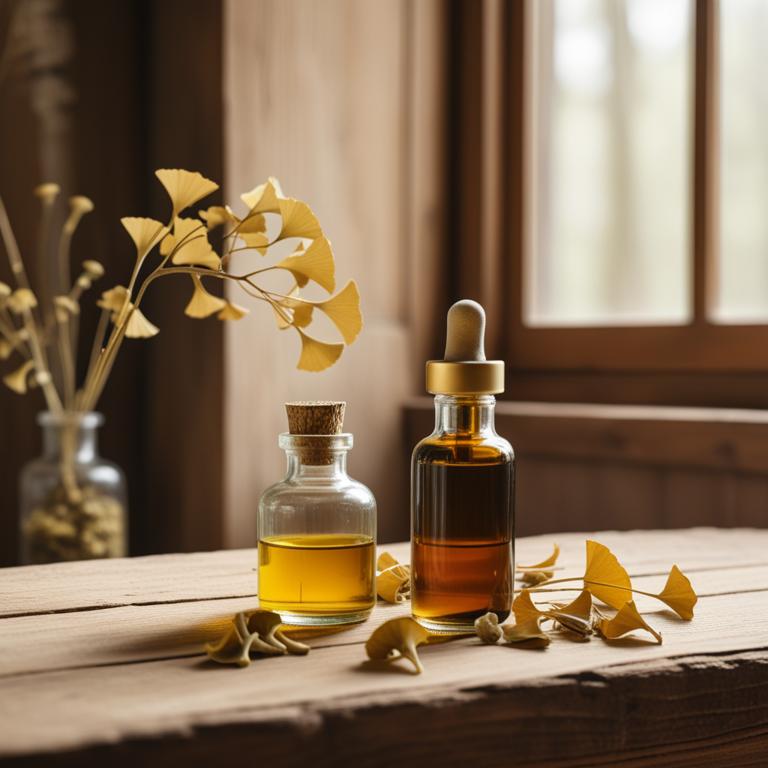
Herbal tinctures for stress are concentrated liquid extracts made from plants, used to alleviate anxiety, fatigue, and other symptoms associated with stress.
These natural remedies offer numerous benefits, including quick absorption, ease of use, and minimal side effects, making them an attractive alternative to pharmaceuticals.
Popular herbal tinctures for stress relief include Ashwagandha, which helps regulate cortisol levels and promote relaxation; Lemon Balm, which calms the mind and soothes the nervous system; Passionflower, which reduces anxiety and promotes sleep; Ginkgo Biloba, which enhances cognitive function and improves mood; and Lavender, which promotes calmness and reduces stress hormones.
By incorporating these herbal tinctures into their daily routine, individuals can effectively manage stress and improve their overall well-being.
According to "Phytomedicine : international journal of phytotherapy and phytopharmacology", tinctures for stress containing a fixed combination of valerian, passion flower, lemon balm, and butterbur extracts (Ze 185) can significantly attenuate self-reported anxiety responses during an acute stress situation.
Below there's a list of the 11 best herbal tinctures for stress.
- 1. Passiflora incarnata tinctures
- 2. Valeriana officinalis tinctures
- 3. Lavandula angustifolia tinctures
- 4. Hypericum perforatum tinctures
- 5. Melissa officinalis tinctures
- 6. Piper methysticum tinctures
- 7. Avena sativa tinctures
- 8. Schisandra chinensis tinctures
- 9. Ginkgo biloba tinctures
- 10. Glycyrrhiza glabra tinctures
- 11. Salvia officinalis tinctures
Also you may be interested in...
TODAY'S FREE BOUNDLE
Herb Drying Checklist + Herbal Tea Shopping List + Medicinal Herbs Flashcards
Enter you best email address below to receive this bundle (3 product valued $19.95) for FREE + exclusive access to The Aphotecary Letter.
$19.95 -> $0.00
1. Passiflora incarnata tinctures
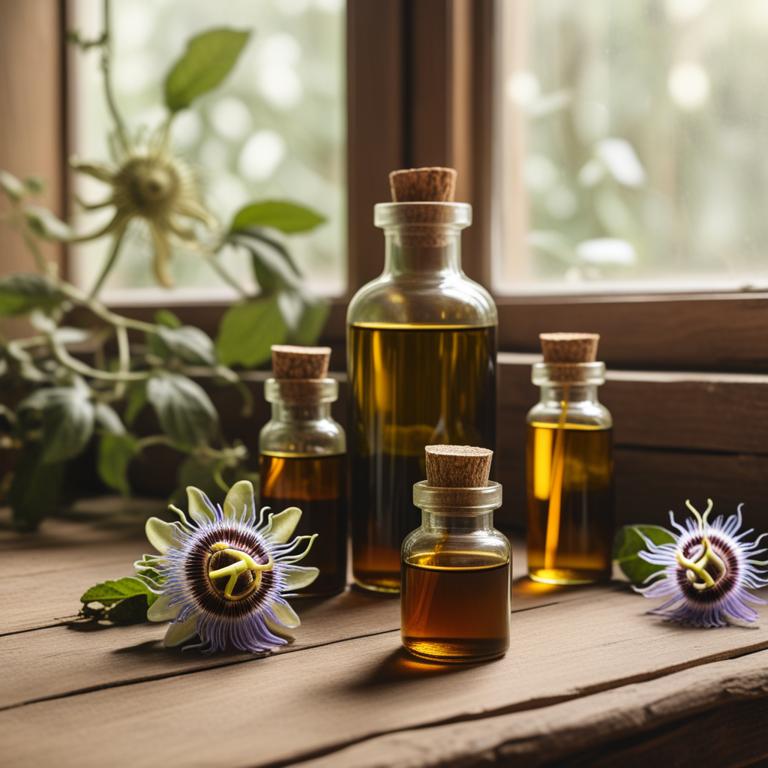
Passiflora incarnata tinctures have been traditionally used to treat stress and anxiety-related ailments due to their sedative and anti-anxiety properties.
The herbal preparation helps to treat stress by promoting relaxation, reducing muscle tension, and calming the nervous system.
The bioactive constituents of Passiflora incarnata tinctures, including flavonoids, alkaloids, and glycosides, have been shown to interact with GABA receptors, thereby reducing anxiety and promoting a sense of calm.
Regular use of Passiflora incarnata tinctures has been found to provide benefits such as improved sleep quality, reduced stress levels, and enhanced mood, making it a popular natural remedy for stress relief.
Related Study
According to "Recent patents on biotechnology", Passiflora incarnata tinctures for stress relief are among the notable herbal treatments that can be used for managing the adverse effects of stress and anxiety related to the global pandemic.
2. Valeriana officinalis tinctures
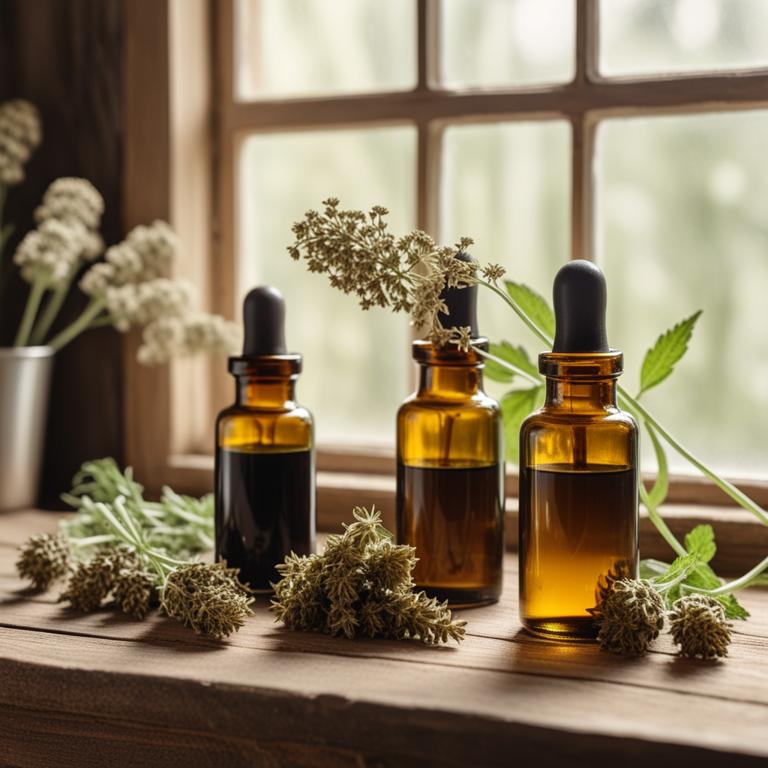
Valeriana officinalis tinctures have been traditionally used to treat stress ailments due to their sedative and calming properties.
The herbal preparation helps to treat stress by promoting relaxation, reducing anxiety, and improving sleep quality, ultimately alleviating symptoms of stress and anxiety.
The bioactive constituents, including valerenic acid and isovaleranone, contribute to its therapeutic effects by acting on the GABA receptors in the brain, which helps to regulate the nervous system and calm the mind.
The benefits of Valeriana officinalis tinctures in treating stress ailments include reduced symptoms of anxiety and insomnia, improved mood, and enhanced overall well-being.
Related Study
According to "Phytomedicine : international journal of phytotherapy and phytopharmacology", Valeriana officinalis tinctures for stress significantly attenuated self-reported anxiety responses to acute psychosocial stress in healthy subjects without affecting biological stress responses.
3. Lavandula angustifolia tinctures
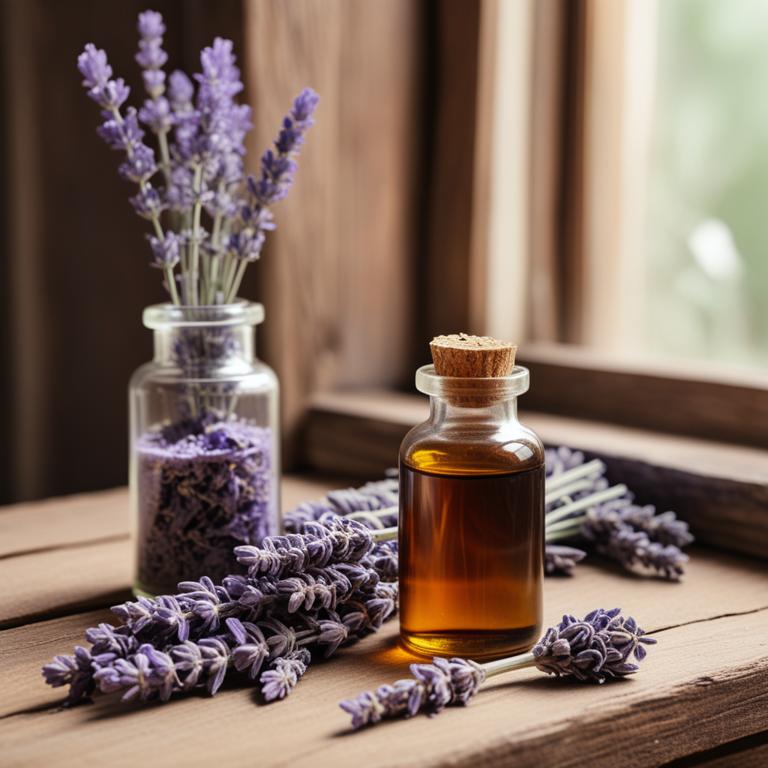
Lavandula angustifolia tinctures have been traditionally used to treat stress and anxiety due to their calming and sedative properties, which help to alleviate symptoms of stress and promote relaxation.
The herbal preparation contains bioactive constituents such as linalool and linalyl acetate, which are responsible for its anxiolytic and sedative effects.
By interacting with the body's GABA receptors, these constituents help to reduce stress and anxiety levels, promoting a sense of calm and well-being.
Regular use of Lavandula angustifolia tinctures has been shown to have a range of benefits, including improved sleep quality, reduced muscle tension, and enhanced mood stability.
Related Study
According to the study, Lavandula angustifolia tinctures significantly reduced individuals' stress scores by 0.73 ± 0.22, with a statistically significant difference compared to the control group.
4. Hypericum perforatum tinctures
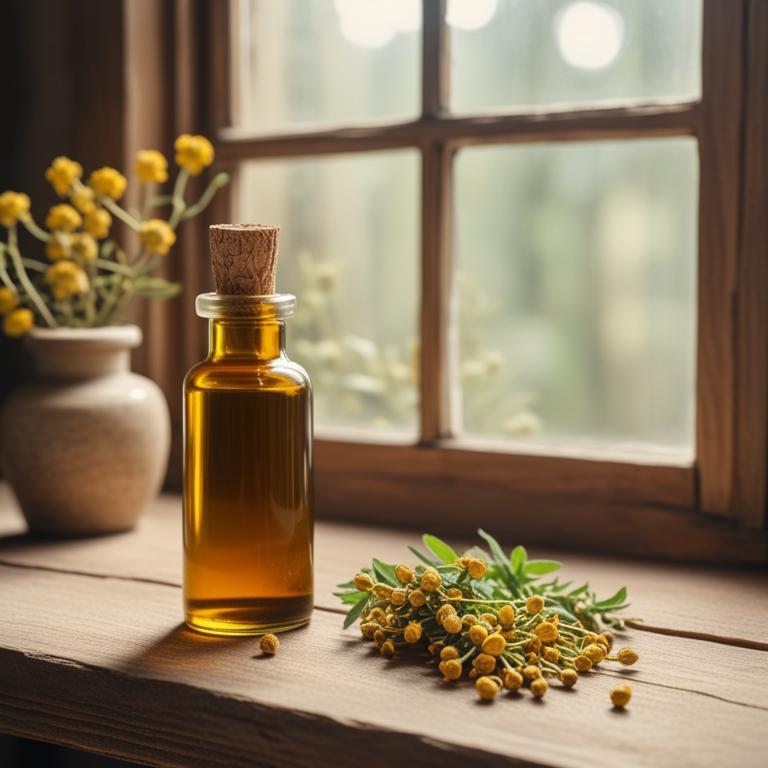
Hypericum perforatum tinctures, derived from the herb St. John's Wort, have been traditionally used to treat stress-related ailments due to its adaptogenic and anxiolytic properties.
This herbal preparation helps to alleviate stress by modulating the activity of neurotransmitters such as serotonin and dopamine, which play a crucial role in regulating mood and emotional responses.
The bioactive constituents of Hypericum perforatum, including hyperforin and hypericin, contribute to its therapeutic effects by interacting with the body's serotonin system, thereby reducing anxiety and promoting relaxation.
The benefits of using Hypericum perforatum tinctures to treat stress include improved mood, reduced anxiety, and enhanced overall well-being, making it a popular natural remedy for stress management.
Related Study
According to "Indian journal of experimental biology", Hypericum perforatum tinctures for stress may exhibit significant anti-stress activity comparable to Panax ginseng, as they were found to attenuate various stress-induced perturbations in albino rats.
5. Melissa officinalis tinctures
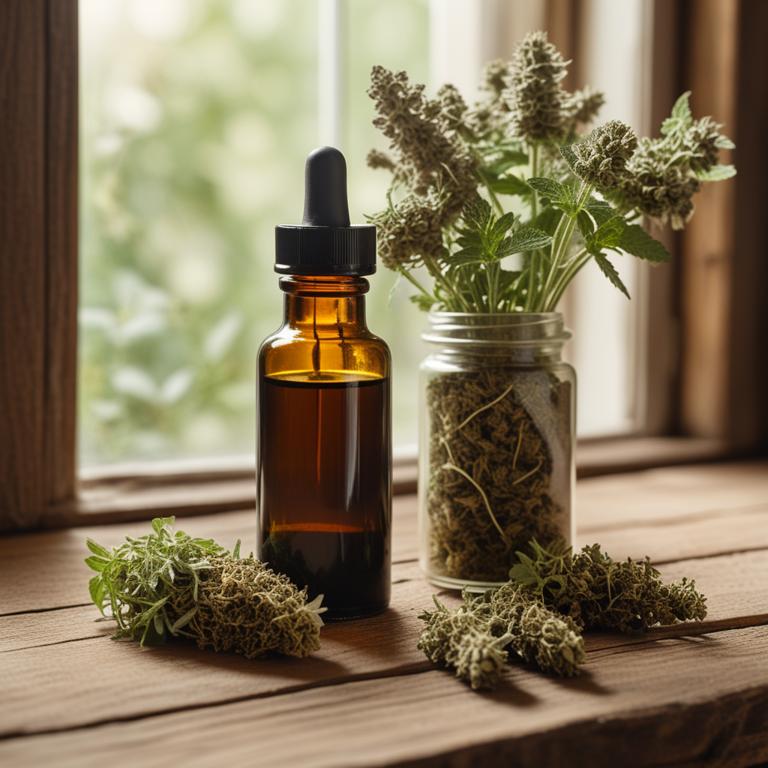
Melissa officinalis tinctures have been traditionally used to treat stress and anxiety due to their calming and sedative properties.
The herbal preparation helps to alleviate stress by promoting relaxation, reducing anxiety, and improving sleep quality, making it an effective natural remedy for managing stress-related ailments.
The bioactive constituents of Melissa officinalis tinctures, including rosmarinic acid, luteolin, and geraniol, contribute to its therapeutic effects by acting as antioxidants and modulating the brain's stress response.
Regular use of Melissa officinalis tinctures has been found to provide numerous benefits, including reduced cortisol levels, improved mood, and enhanced overall well-being, making it a popular natural solution for stress management.
Related Study
According to the BMC Complementary Medicine and Therapies study, Melissa officinalis tinctures for stress, specifically in patients with type 2 diabetes and depressive symptoms, showed a significant decrease in depression severity (p < 0.001) and anxiety severity (p = 0.01) after a 12-week treatment.
6. Piper methysticum tinctures
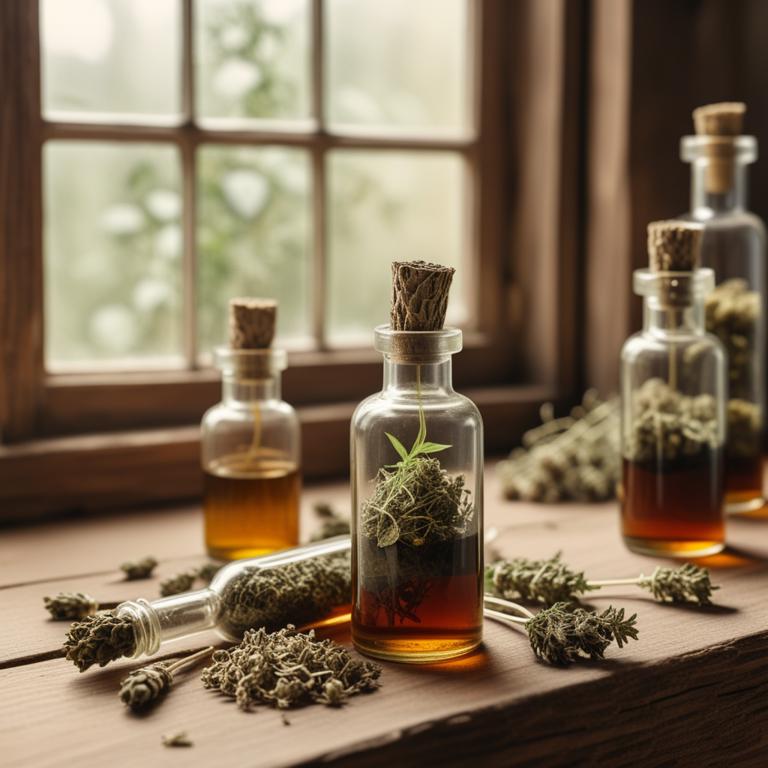
Piper methysticum tinctures, also known as kava tinctures, have been traditionally used to treat stress and anxiety-related ailments.
The properties of this herbal preparation that help to treat stress include its anxiolytic, sedative, and muscle relaxant effects, which can help to reduce feelings of anxiety and promote relaxation.
The bioactive constituents of kava tinctures, such as kavalactones (kavain, dihydrokavain, and methysticin), are responsible for its therapeutic effects, including their ability to interact with the neurotransmitter GABA, which can help to reduce stress and anxiety.
The benefits of using kava tinctures to treat stress include reduced anxiety and stress levels, improved sleep quality, and enhanced overall sense of well-being.
Related Study
According to "Alternative medicine review : a journal of clinical therapeutic", Piper methysticum tinctures for stress have been found to have significant anxiolytic effects, comparing favorably to prescription medications such as benzodiazepines, and are often used at a therapeutic dosage of 50-70 mg kava lactones three times daily.
7. Avena sativa tinctures
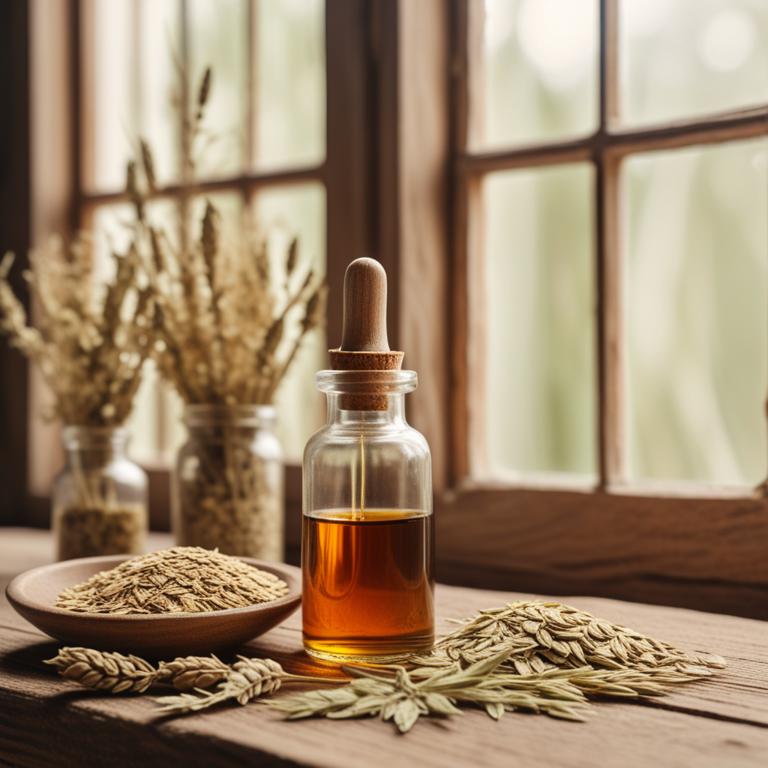
Avena sativa tinctures are a popular herbal preparation used to treat stress and anxiety-related ailments.
The calming properties of Avena sativa tinctures help to treat stress by promoting relaxation, reducing anxiety, and improving sleep quality.
The bioactive constituents of Avena sativa, including avenacosides and avenanthramides, have been shown to have a sedative effect and help to regulate the body's response to stress.
Regular use of Avena sativa tinctures can provide numerous benefits, including reduced stress levels, improved mood, and enhanced overall well-being.
8. Schisandra chinensis tinctures
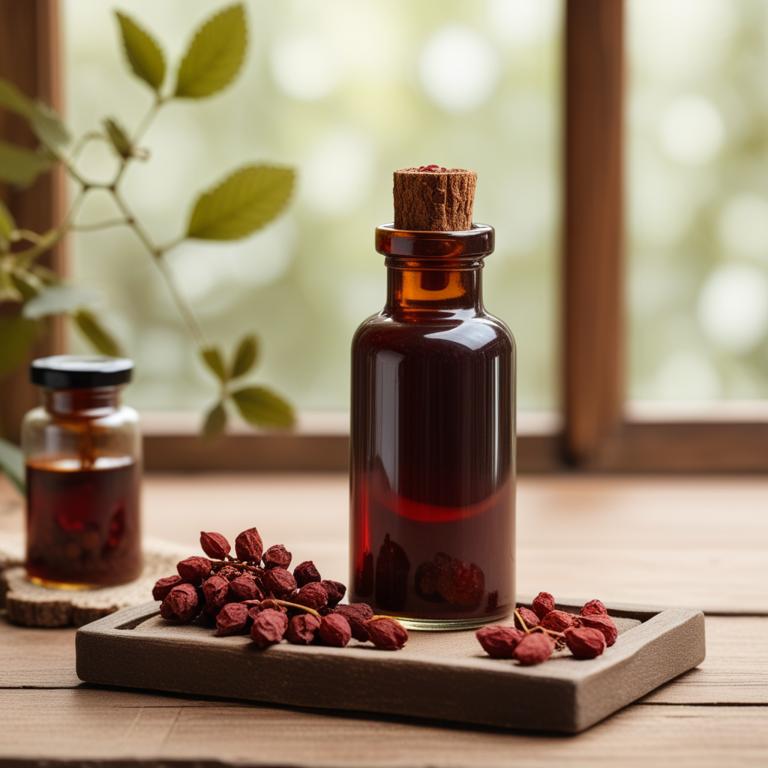
Schisandra chinensis tinctures have been traditionally used to treat stress and anxiety due to their adaptogenic properties, which help the body adapt to stress and promote balance.
The bioactive constituents of Schisandra chinensis, including schisantherin A, schisandrins, and schisandrin B, have been shown to have anxiolytic and antioxidant effects, contributing to its stress-relieving properties.
By reducing cortisol levels, improving mood, and enhancing cognitive function, Schisandra chinensis tinctures help alleviate the symptoms of stress and anxiety, promoting overall well-being and resilience.
The benefits of using Schisandra chinensis tinctures to treat stress and anxiety include improved sleep quality, enhanced mental clarity, and a reduced risk of chronic stress-related disorders.
Related Study
According to the study in "Nutrients", Schisandra chinensis tinctures for stress may interact with the gut microbiota, potentially mediating mental health benefits due to increased abundance of health-beneficial microorganisms, anti-inflammatory effects, or MGBA-related pathway effects by gut microbial metabolites.
9. Ginkgo biloba tinctures

Ginkgo biloba tinctures have been used to treat stress and anxiety due to their calming properties, which help to reduce feelings of overwhelm and promote relaxation.
The bioactive constituents of ginkgo biloba, including flavonoids and terpenoids, work together to increase blood flow to the brain and reduce inflammation, leading to improved mood and reduced stress levels.
The benefits of using ginkgo biloba tinctures to treat stress include improved sleep quality, reduced anxiety, and enhanced cognitive function.
Regular use of ginkgo biloba tinctures can also help to reduce symptoms of depression and promote overall well-being.
Related Study
According to "Current drug metabolism", Ginkgo biloba tinctures for stress have been shown to have a positive effect in reducing anxiety under pathological conditions and improving cognitive abilities in impaired individuals.
10. Glycyrrhiza glabra tinctures

Glycyrrhiza glabra tinctures, derived from the root of the licorice plant, have been traditionally used to treat stress and anxiety-related ailments due to their adaptogenic properties.
The bioactive constituents of Glycyrrhiza glabra tinctures, such as glycyrrhizin and flavonoids, help to regulate the body's response to stress by reducing cortisol levels and promoting relaxation.
By modulating the hypothalamic-pituitary-adrenal (HPA) axis, Glycyrrhiza glabra tinctures help to mitigate the negative effects of stress on the body, leading to improved mood and reduced anxiety.
The benefits of using Glycyrrhiza glabra tinctures to treat stress include reduced symptoms of anxiety and depression, improved sleep quality, and enhanced overall well-being.
11. Salvia officinalis tinctures
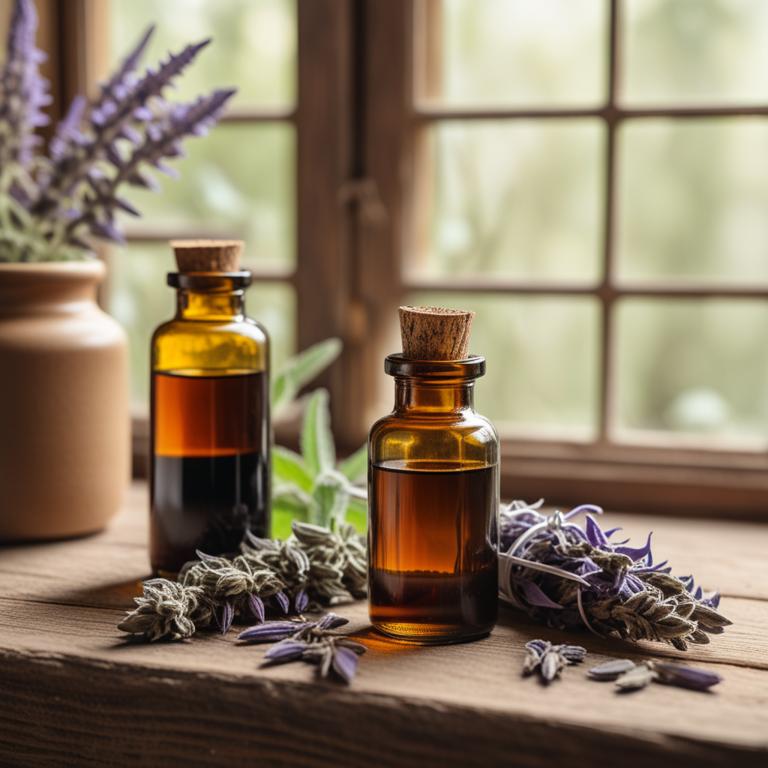
Salvia officinalis tinctures have been used to treat stress ailments due to their adaptogenic and calming properties, which help to reduce anxiety and promote relaxation.
The bioactive constituents of Salvia officinalis, such as rosmarinic acid, ursolic acid, and camphor, contribute to its anxiolytic and stress-reducing effects by modulating the activity of neurotransmitters and hormones in the body.
By regulating the body's response to stress, Salvia officinalis tinctures can help to alleviate symptoms of anxiety, insomnia, and fatigue, thereby promoting overall well-being and improving the quality of life.
The benefits of using Salvia officinalis tinctures to treat stress ailments include improved sleep, reduced anxiety, and enhanced mood, making it a valuable herbal remedy for individuals seeking natural stress relief.
Related Study
According to "Alternative therapies in health and medicine", Salvia officinalis tinctures for stress may be effective due to their anxiolytic properties, which are attributed to their ability to influence the central nervous system and potentially interact with the mechanisms involved in the pathophysiology of anxiety.